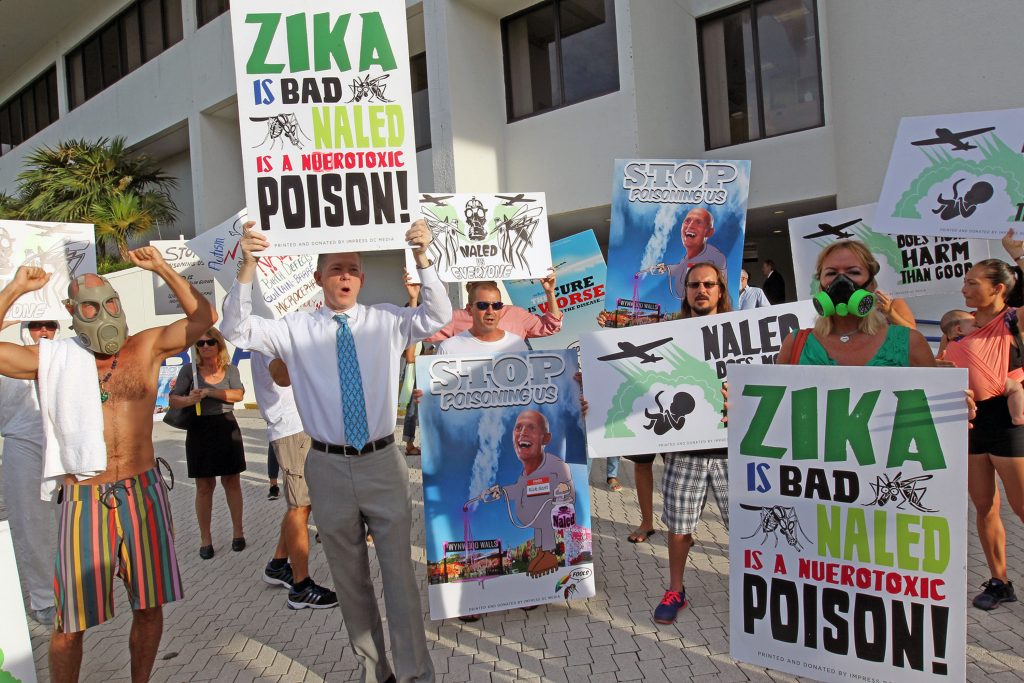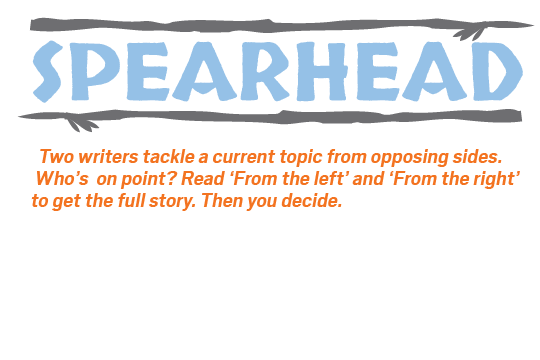
After failed use of common chemicals, Miami officials decided to use Naled, a strong but highly controversial insecticide, to attempt to kill mosquitoes carrying the Zika virus.
There are cases of people getting Zika all over the world. Televisions in the United States are bombarded with news concerning methods to prevent it from spreading through the states. So far, Naled is the main strategy of killing mosquitoes and avoiding an epidemic.
Mosquito bites spread Zika. If infected, it can cause birth defects like microcephaly in unborn children and may have a link to Guillain-Barre syndrome, a disorder where your body’s immune system attacks your nerves, as well. Although Zika poses a serious issues, the risks of using Naled outweighs them.
The EPA approves Naled in the U.S. as long as application does not pose excess danger. Nonetheless, it is classified as harmful to aquatic life and dangerous if swallowed or encounters skin. Naled can potentially over stimulate the nervous system and cause nausea, dizziness, confusion and even death. The European Union banned it in 2012, considering these unacceptable risks to the environment and human health.
Residents in Miami do not want to risk these side effects. One local artist, Evo Love, is especially concerned.
“I’m not a scientist and I’m not a doctor, but I know that when I go in my backyard and my tongue is shaking for four hours and I am ready to rush myself to the emergency room, something in that chemical is not right,” Love said.
The effects of Naled are not clear. The EPA advises staying indoors during sprayings, washing skin and eyes if exposed to it and covering or cleaning everything it touches. If it didn’t cause harm there would not be so many precautions.
Other countries, like Brazil, recommend that their citizens avoid making mosquito breeding sites. Sealing and cleaning out gutters, water tanks and trash bins helps minimize the possibility of spreading the disease, according to Zika virus counterattack.
The Florida Keys has seen major problems with the production of agricultural crops and animal deaths because of Naled for decades. There is no way to eradicate the mosquito and continually spraying a powerful neurotoxin kills butterflies, bees and other winged insects that are beneficial to the environment.
Bees pollinate 90 percent of plants and help grow one third of the global food supply. Aerial sprayings kill thousands of them every day. According to the Miami Herald, Naled kills all bees caught outside the hive. The world is already losing bees for reasons unknown, to use this chemical they knowingly kill them and it’s irresponsible of the government. Without bees, animals and humans that depend on bees for food, will eventually lose most of their food supply.
The government needs to find another way of fighting zika-carrying mosquitos that does not pose a threat to the environment and human health. Naled spraying will come to Orlando and the rest of the U.S. if they do not. Although Naled successfully kills mosquitoes now, scientists say it has negative long-term effects for humans, small insects, like butterflies and bees, and causes more harm than good.
To see the opposite point of view, click here.
